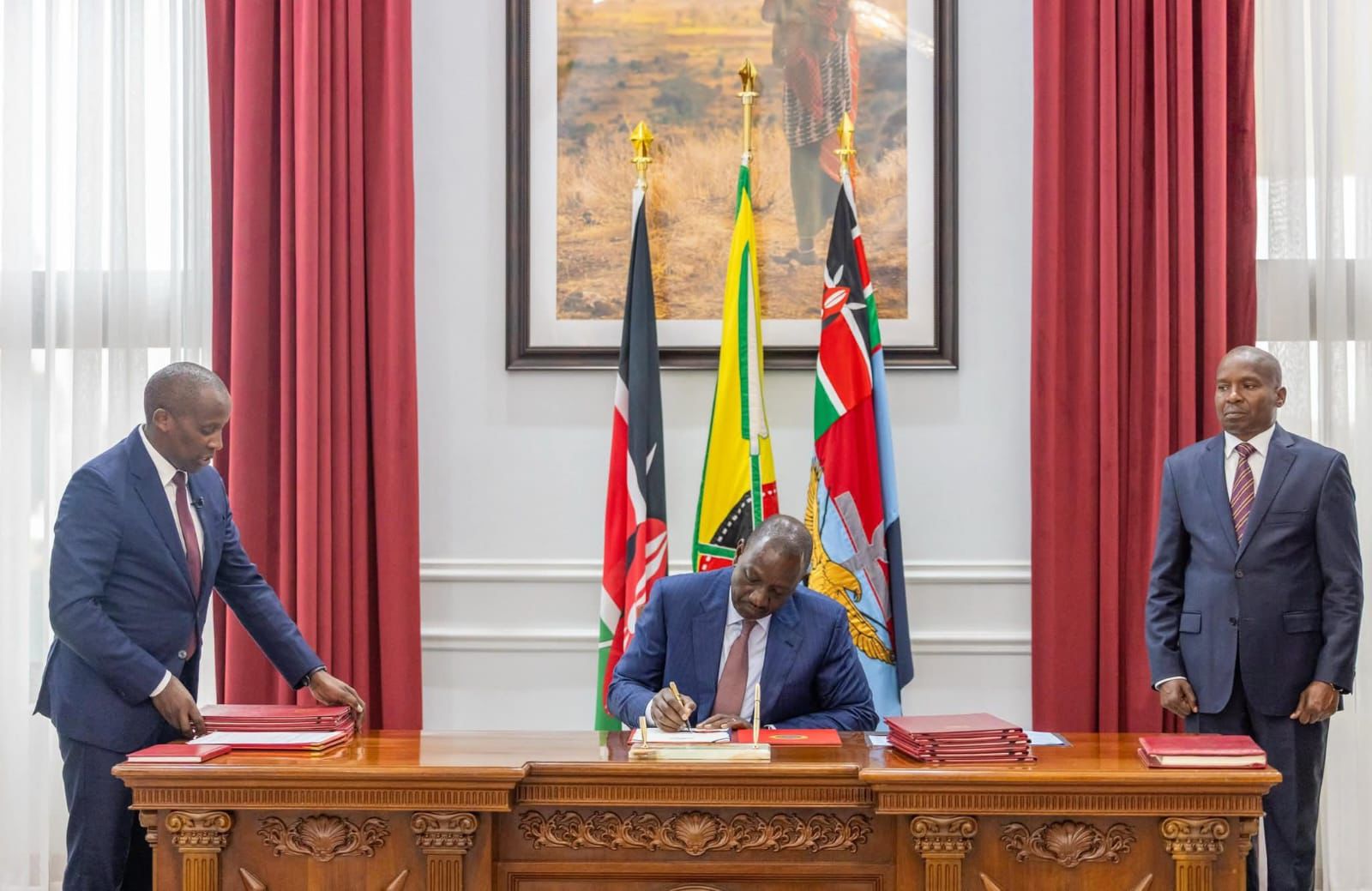Former Public Service Cabinet Secretary Justin Muturi has slammed President William Ruto after he signed the Conflict of Interest Act, 2025, into law.
In a statement on Thursday, July 31, Muturi said the main challenge in the fight against corruption is not the absence of laws, but the lack of political goodwill.
“We have no shortage of laws. What we lack is sincerity and political goodwill. The signing of the Conflict of Interest Act 2025 into law is yet another addition to an already full shelf of anti-corruption legislation in Kenya. But laws alone have never been the problem,” said Muturi.
The former Attorney General emphasized that the fight against graft must begin at the highest levels of government, including State House.
“We must be honest with ourselves: fish rots from the head. If corruption is to be confronted meaningfully, it must start from the very top, State House included. It is not just about institutions and frameworks; it’s about the integrity of those entrusted with power,” Muturi stated.
Read More

Further, he claimed that state agencies mandated to fight corruption are themselves caught in the web of the very vice they are meant to uproot.
President Ruto on Wednesday, July 30, signed the Conflict of Interest Act, 2025, into law at State House, Nairobi.
The Act, which was sponsored by National Assembly Majority Leader Kimani Ichung'wah, consolidates all laws related to conflict of interest and provides a legal framework for managing such conflicts under the general supervision of the Ethics and Anti-Corruption Commission (EACC).
The law prohibits public officers, in the performance of official duties, from granting preferential treatment beyond what is allowed by law or written policy.
It disallows public officers from being influenced by offers of outside employment in the exercise of official powers, and bars them from entering into contracts with their reporting entities for the supply or disposal of goods.
The law also prohibits public officers from acquiring interests in entities contracting with their public offices and restricts engagement in other gainful employment that conflicts with or impairs their official duties.




-1764932518.jpg)
